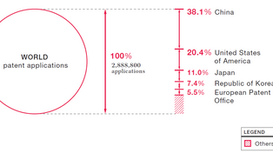What rights do producers of sound recordings and videos enjoy?
- Admin
- May 11, 2023
- 1 min read

The economic rights of producers of sound recordings, or phonograms, are protected by international conventions and national laws. These rights include the reproduction, distribution, rental, and dissemination of sound recordings via the Internet, according to the TRIPS Agreement, Rome Convention, and WPPT. Once a sound recording has been produced by a record company, no other party is allowed to copy, sell, rent, or disseminate the recording without the producer's permission. In some countries, broadcasting stations, shopping malls, and bars must pay a fee to the producer for broadcasting the recording. If a phonogram or video producer wishes to create an audio or video recording, they must obtain the author's permission to use the copyrighted work and pay remuneration. However, the rights of video producers are only recognized in certain countries with a civil law legal system and refer to video recordings that lack originality and are not considered audiovisual works.





















댓글